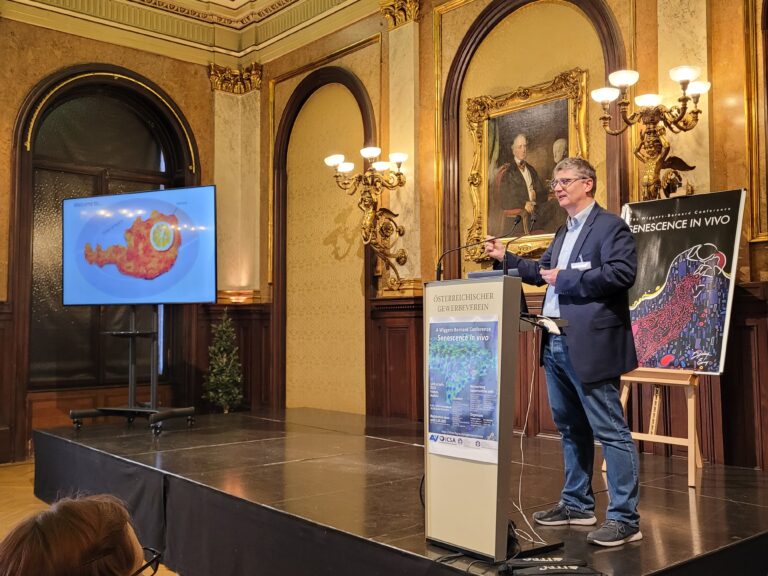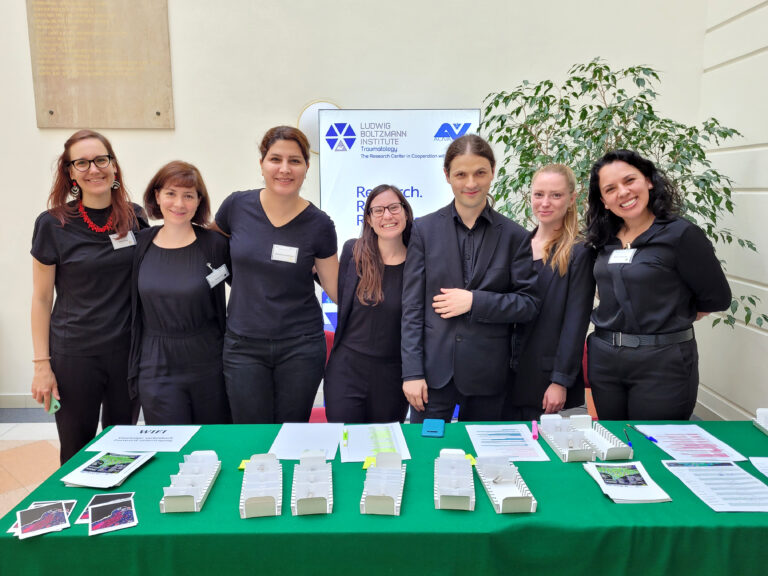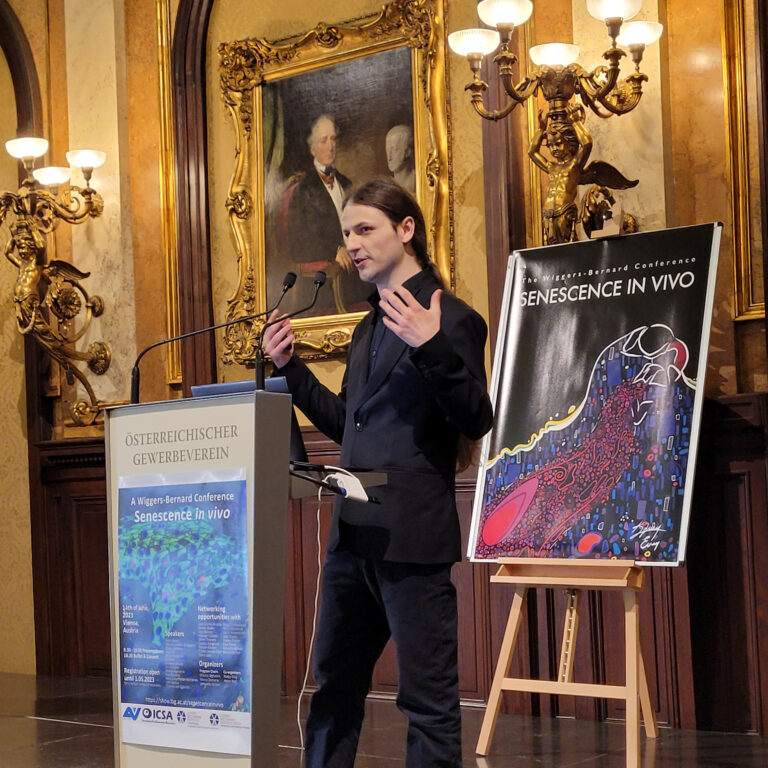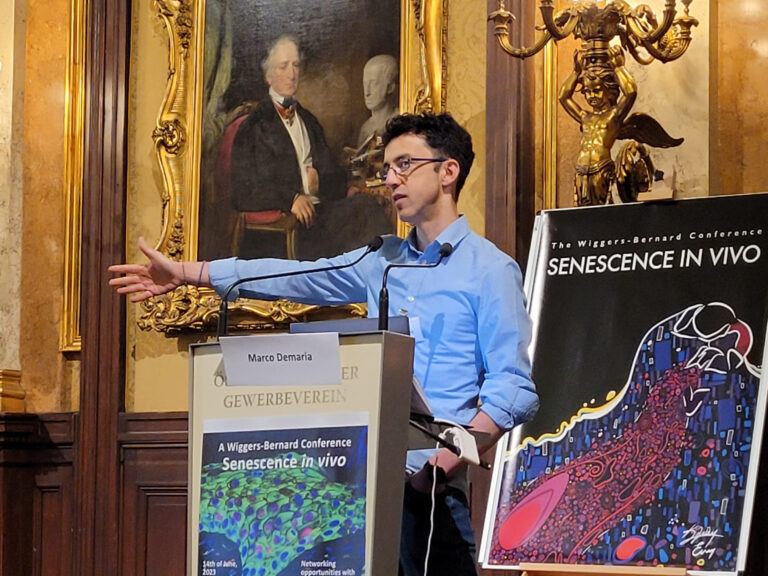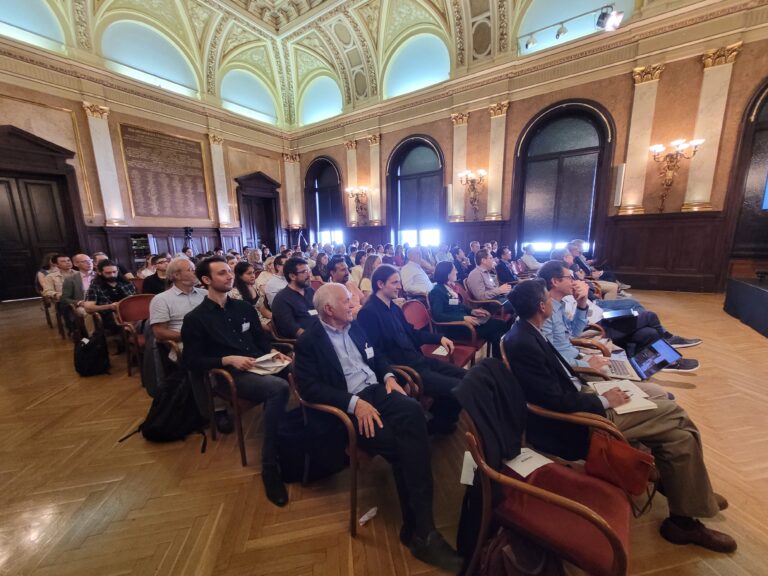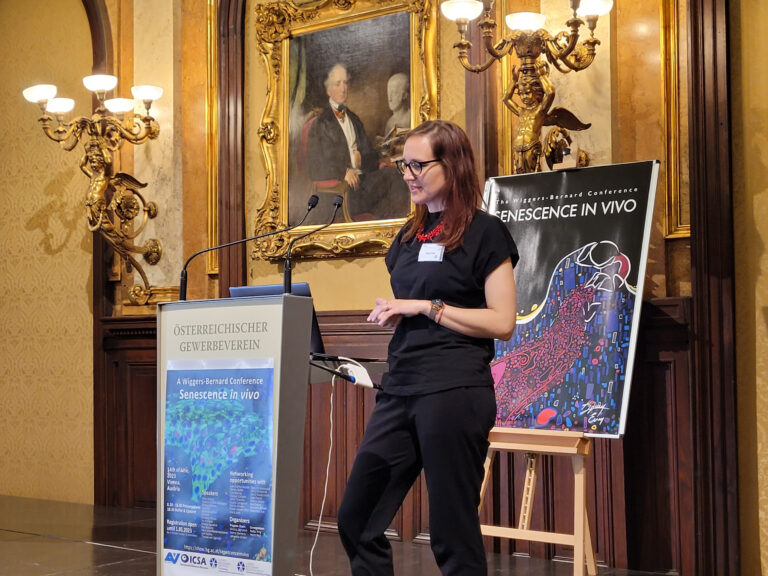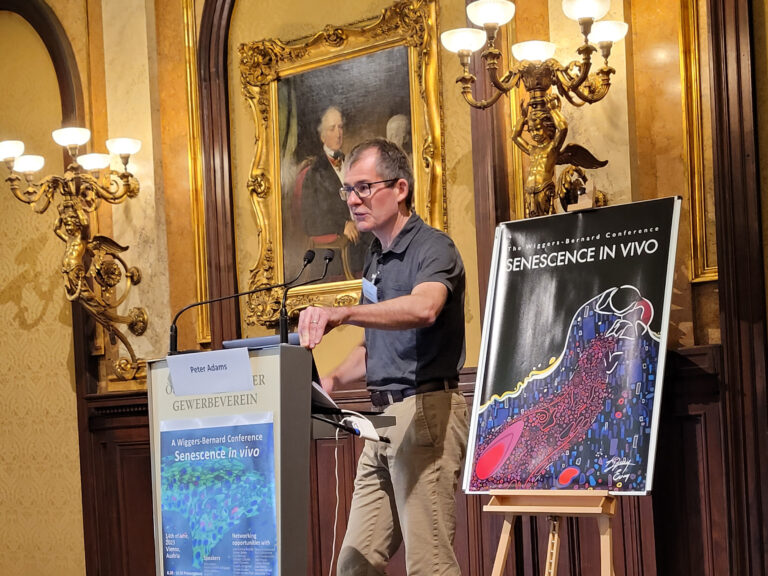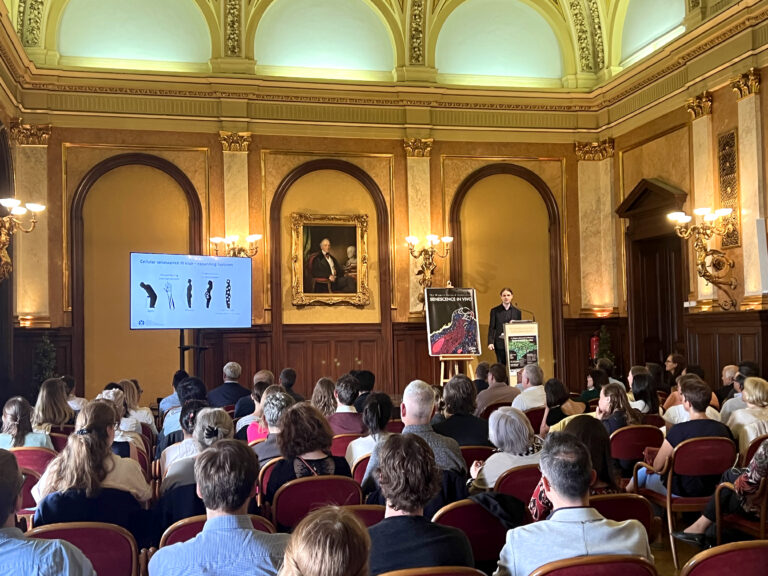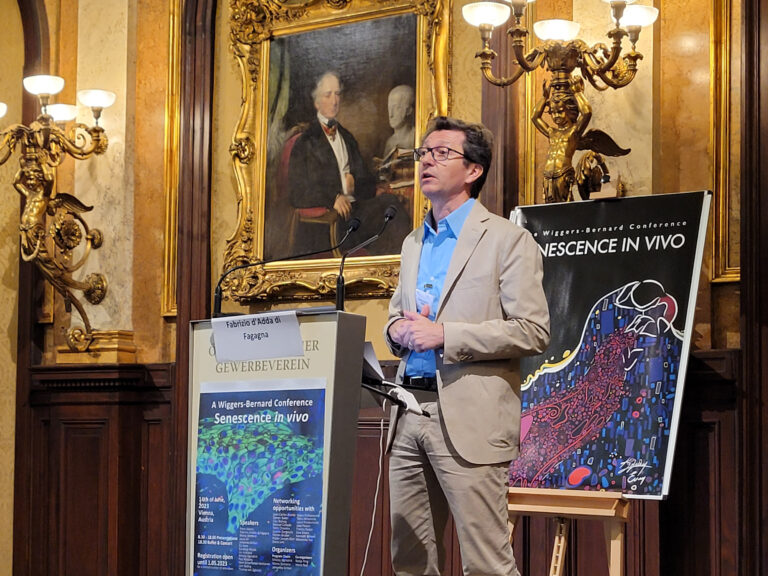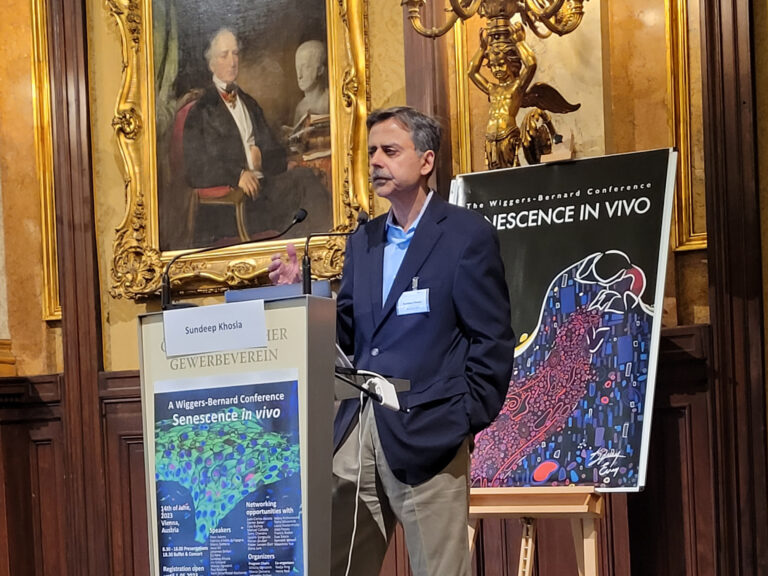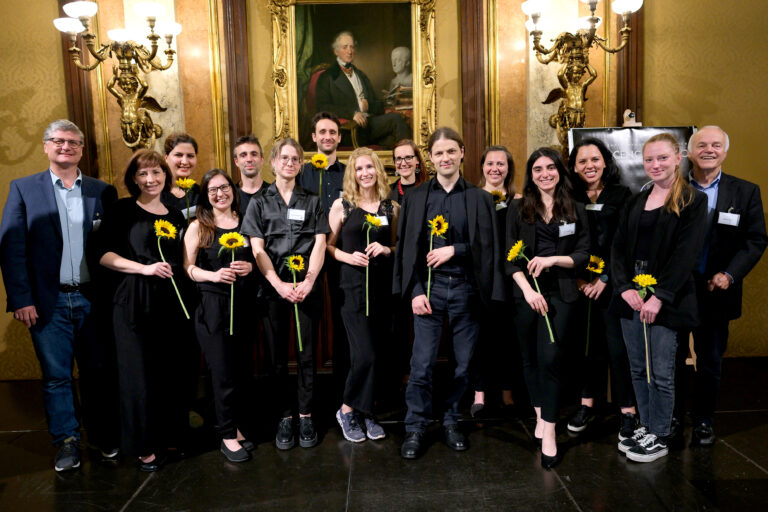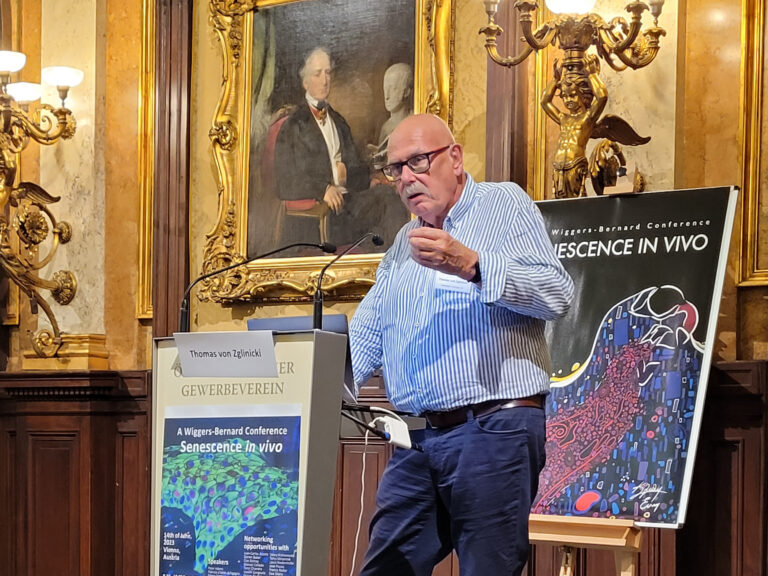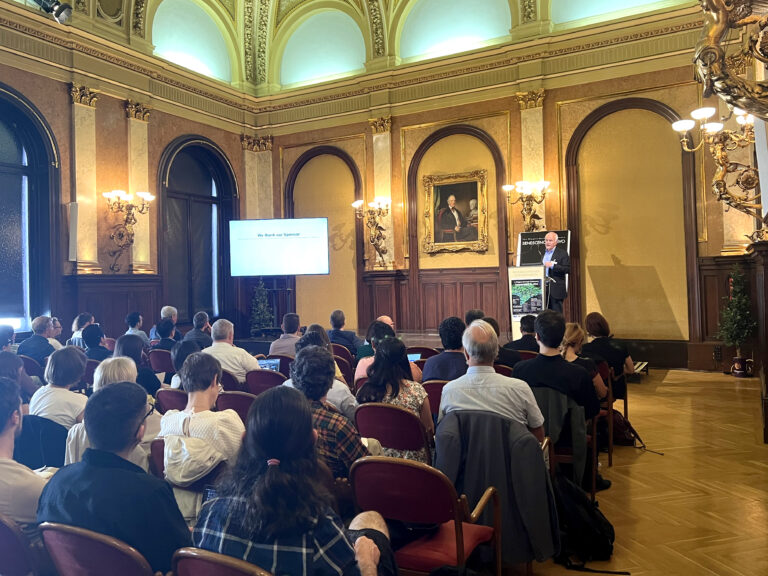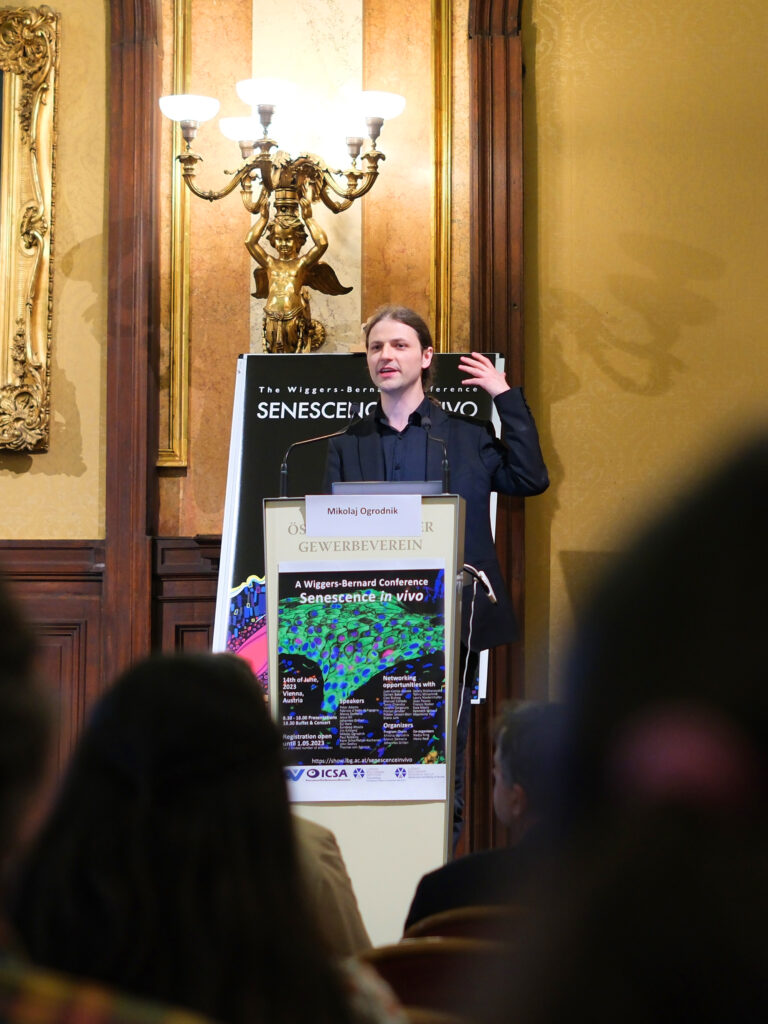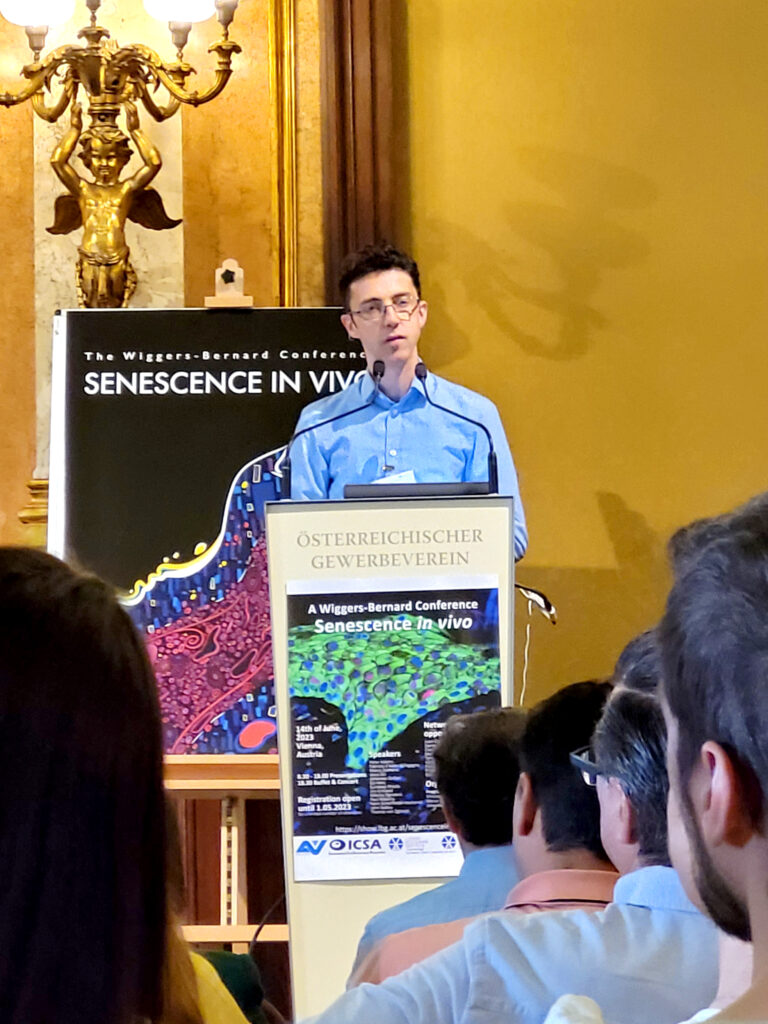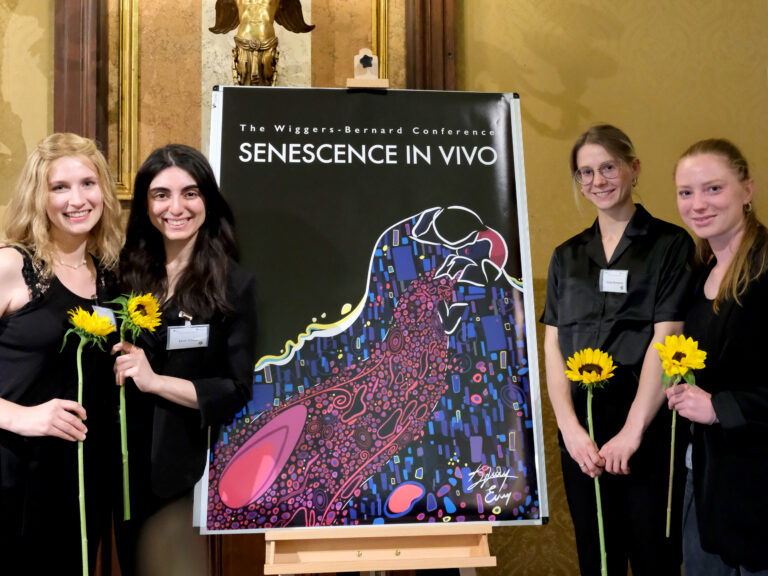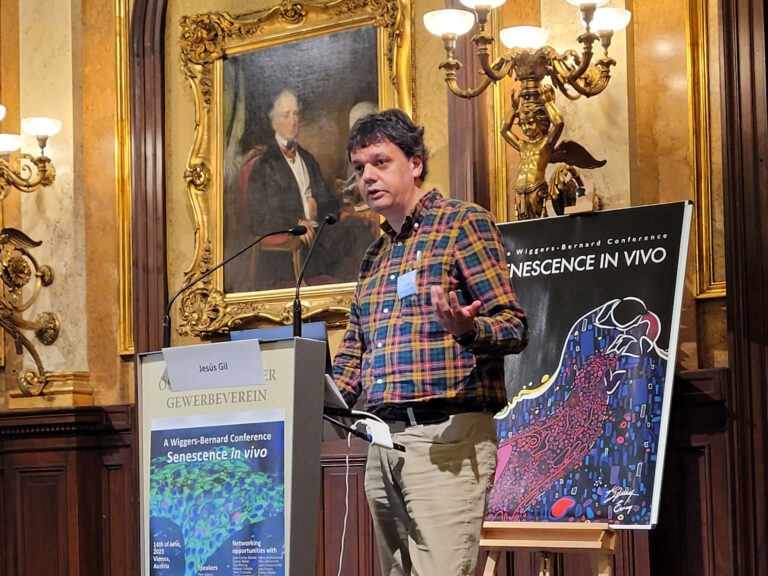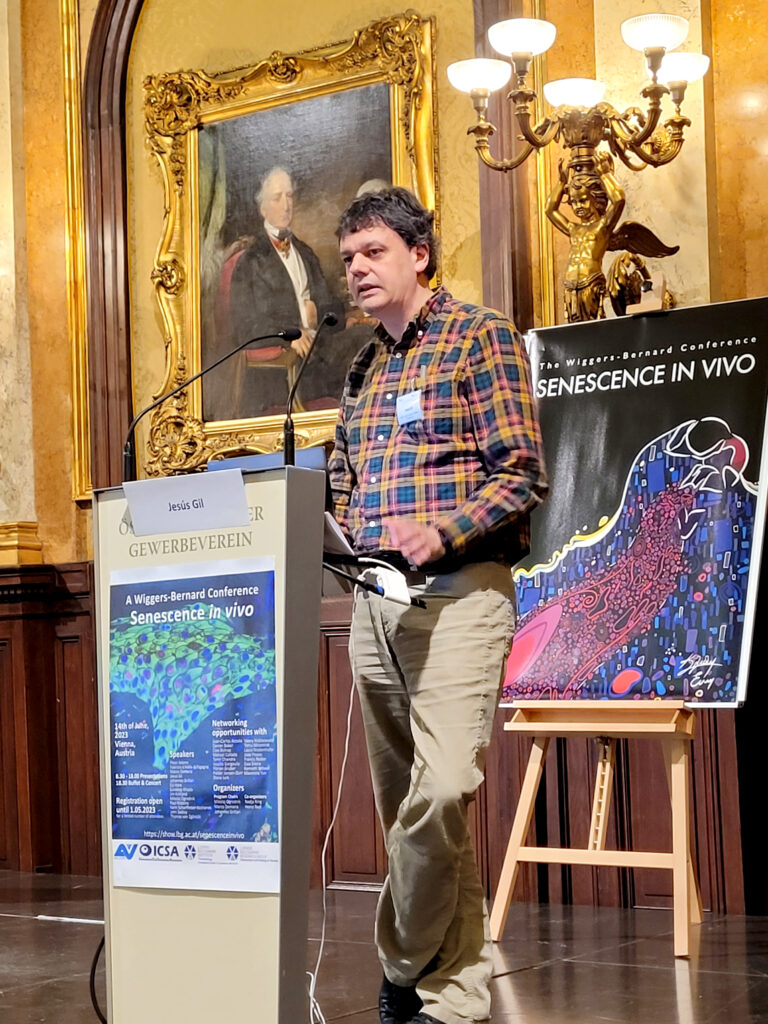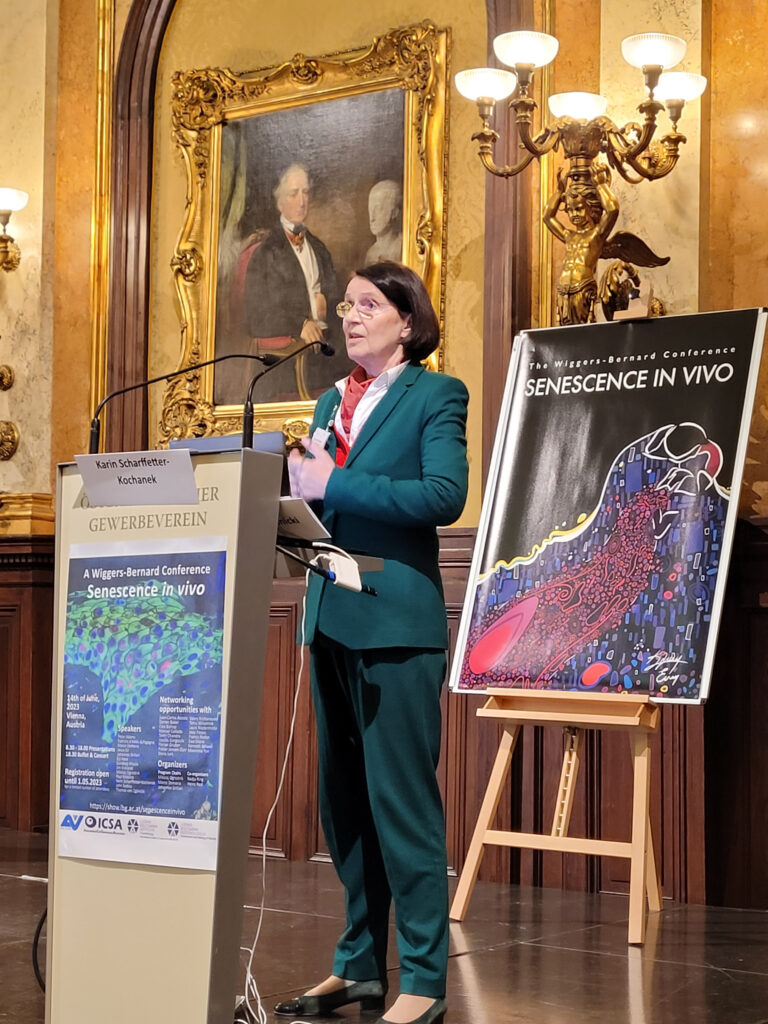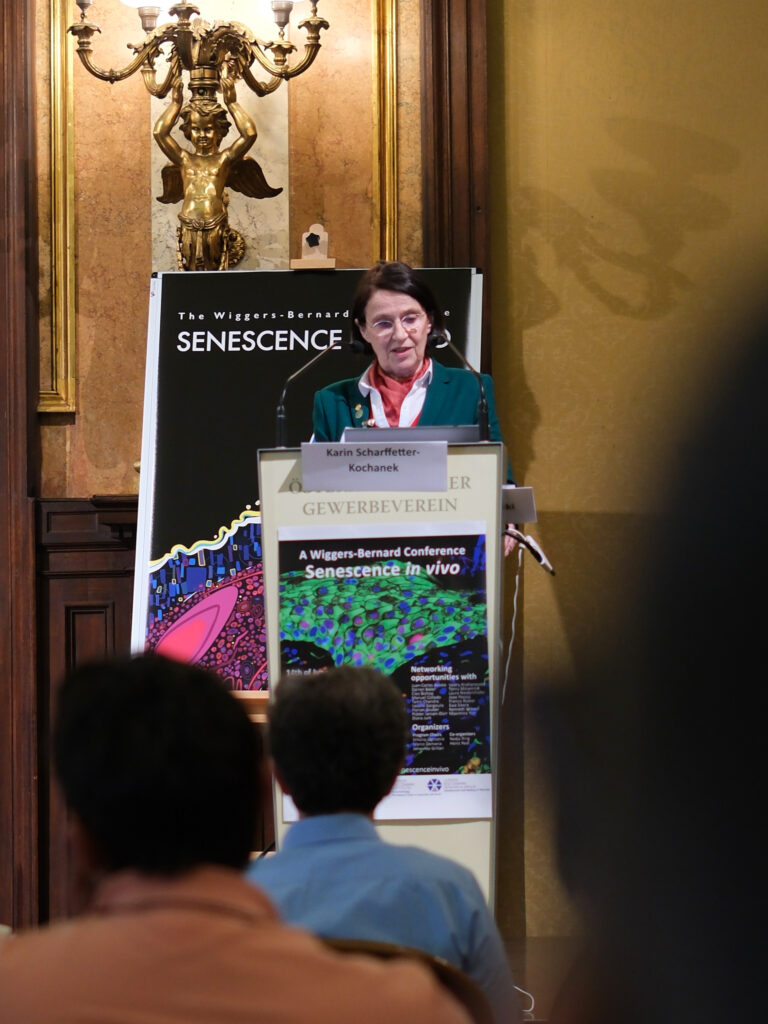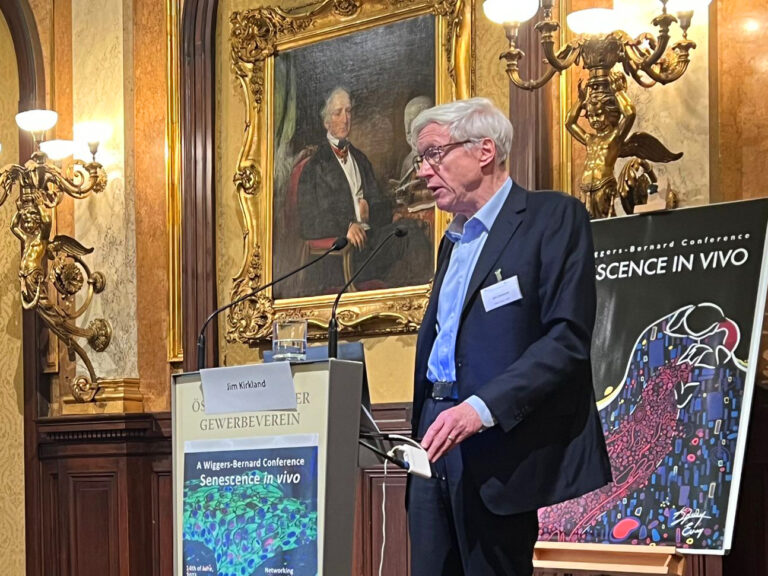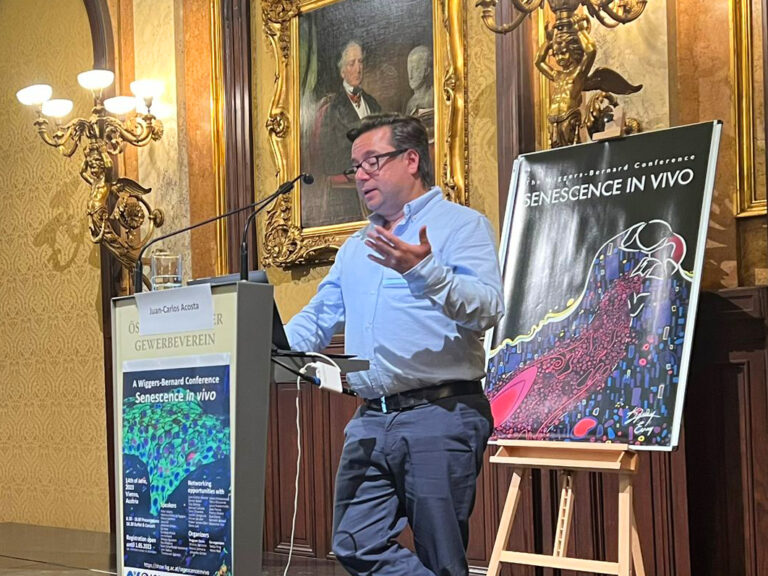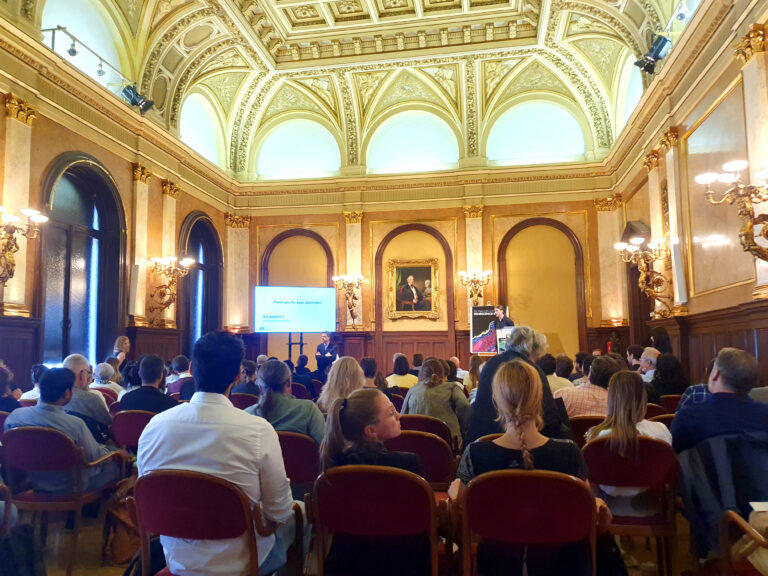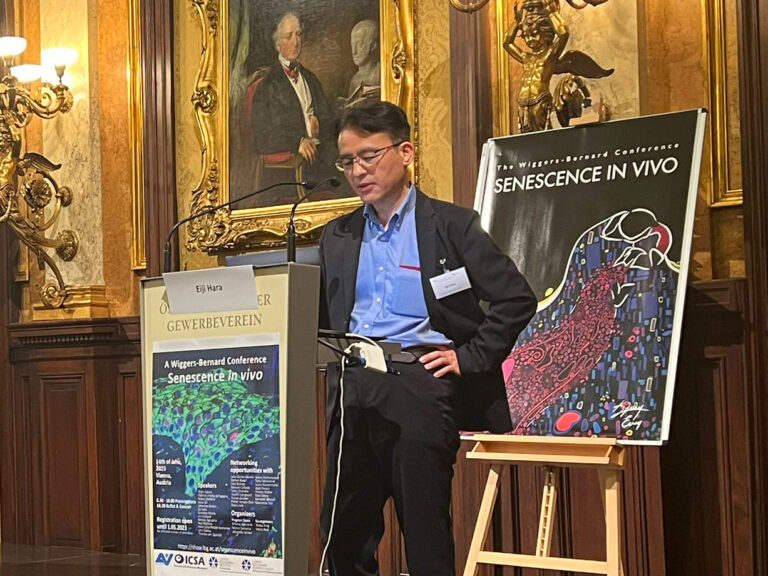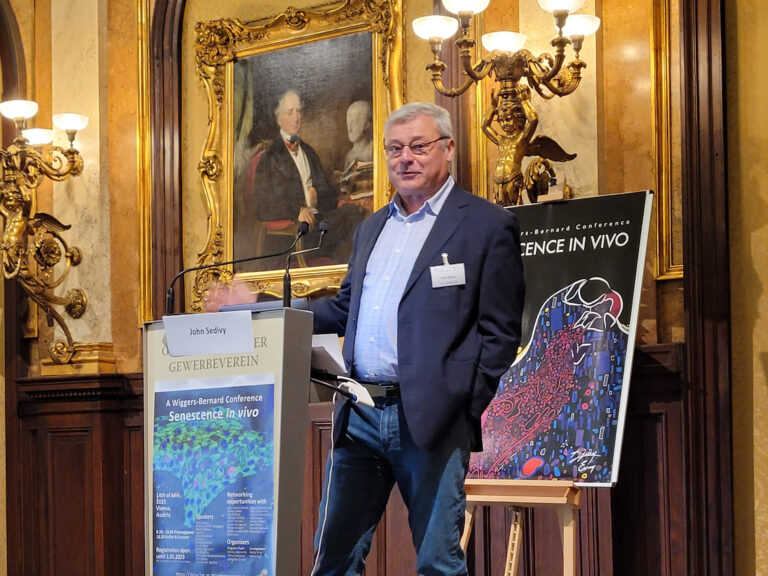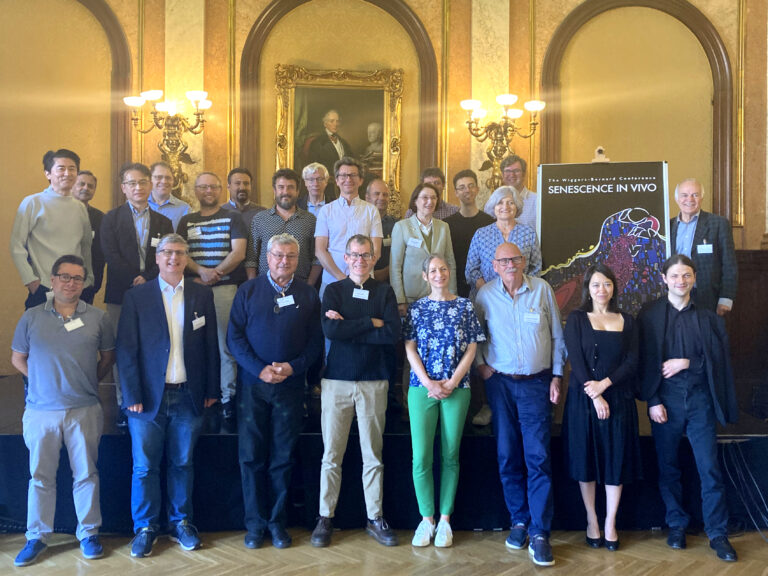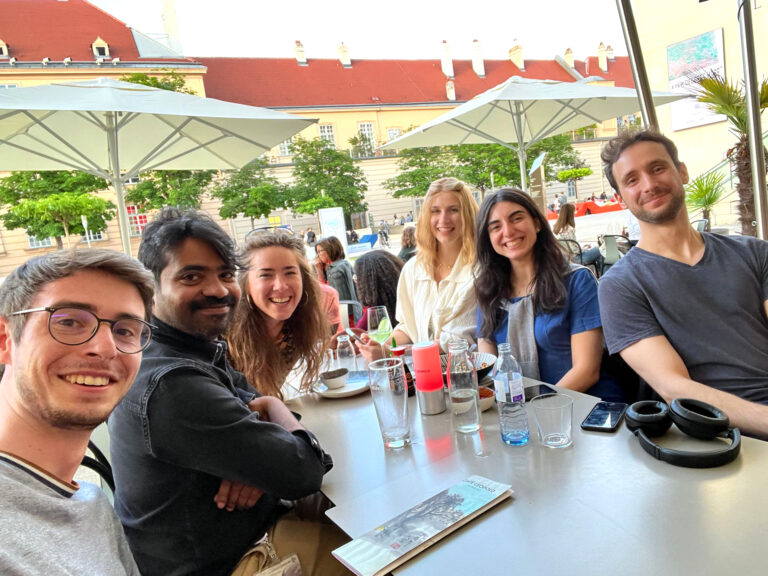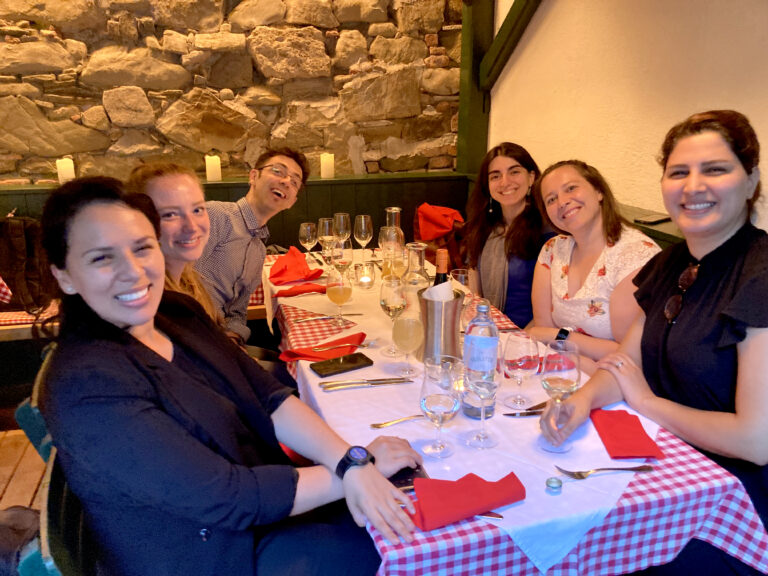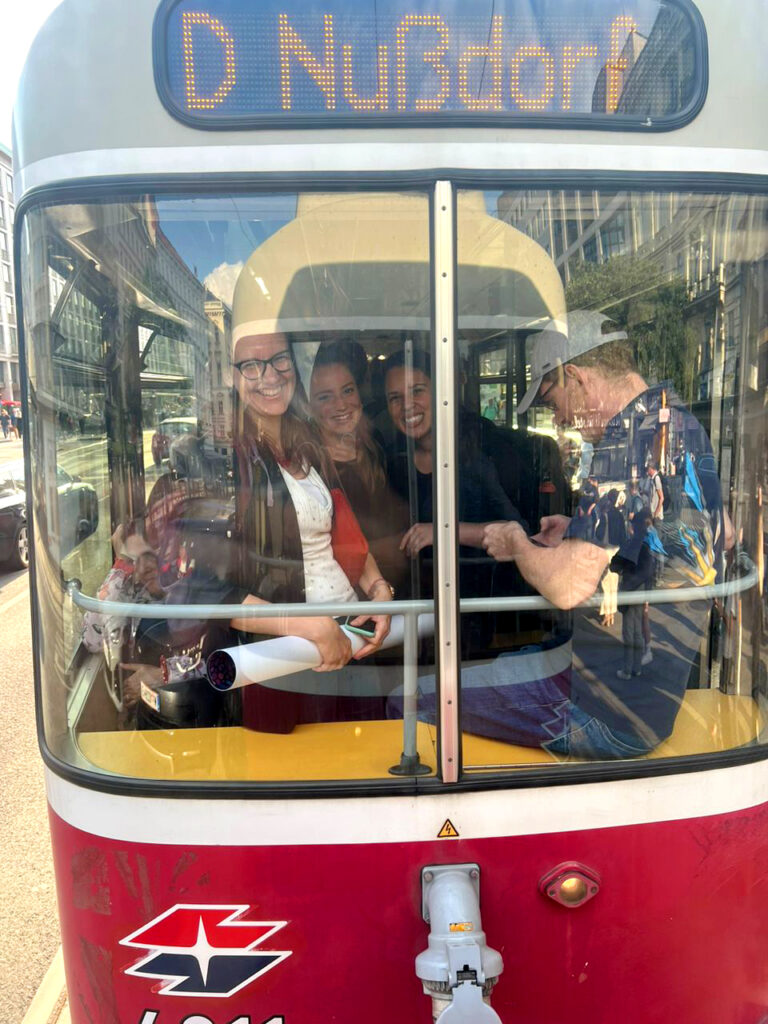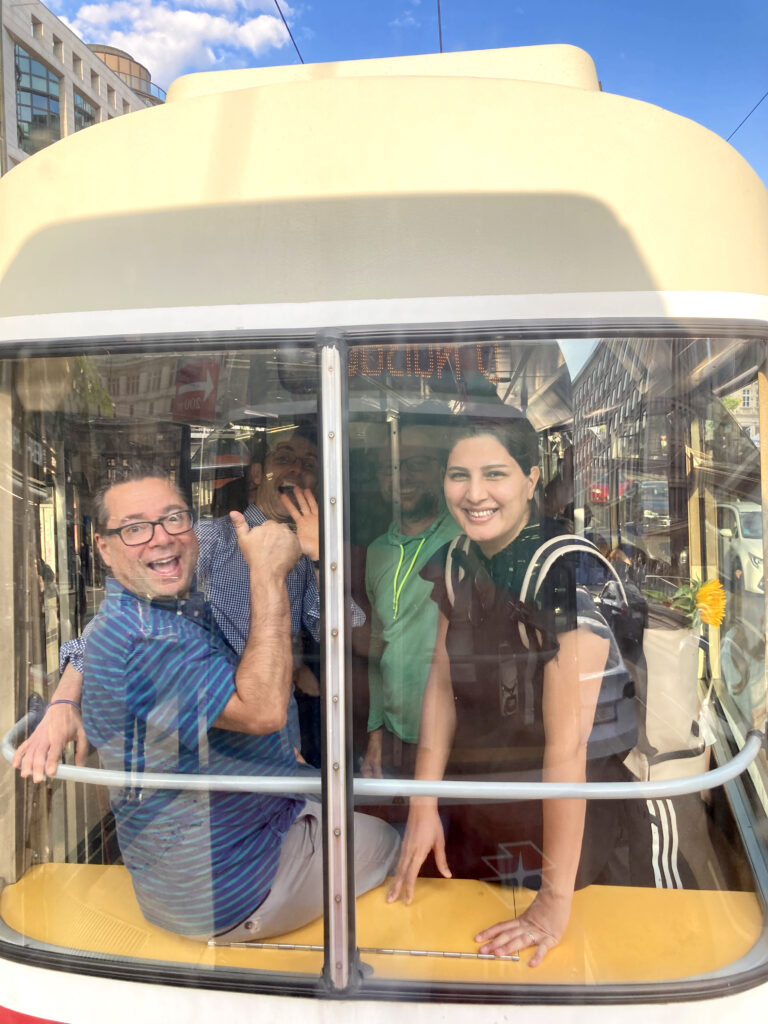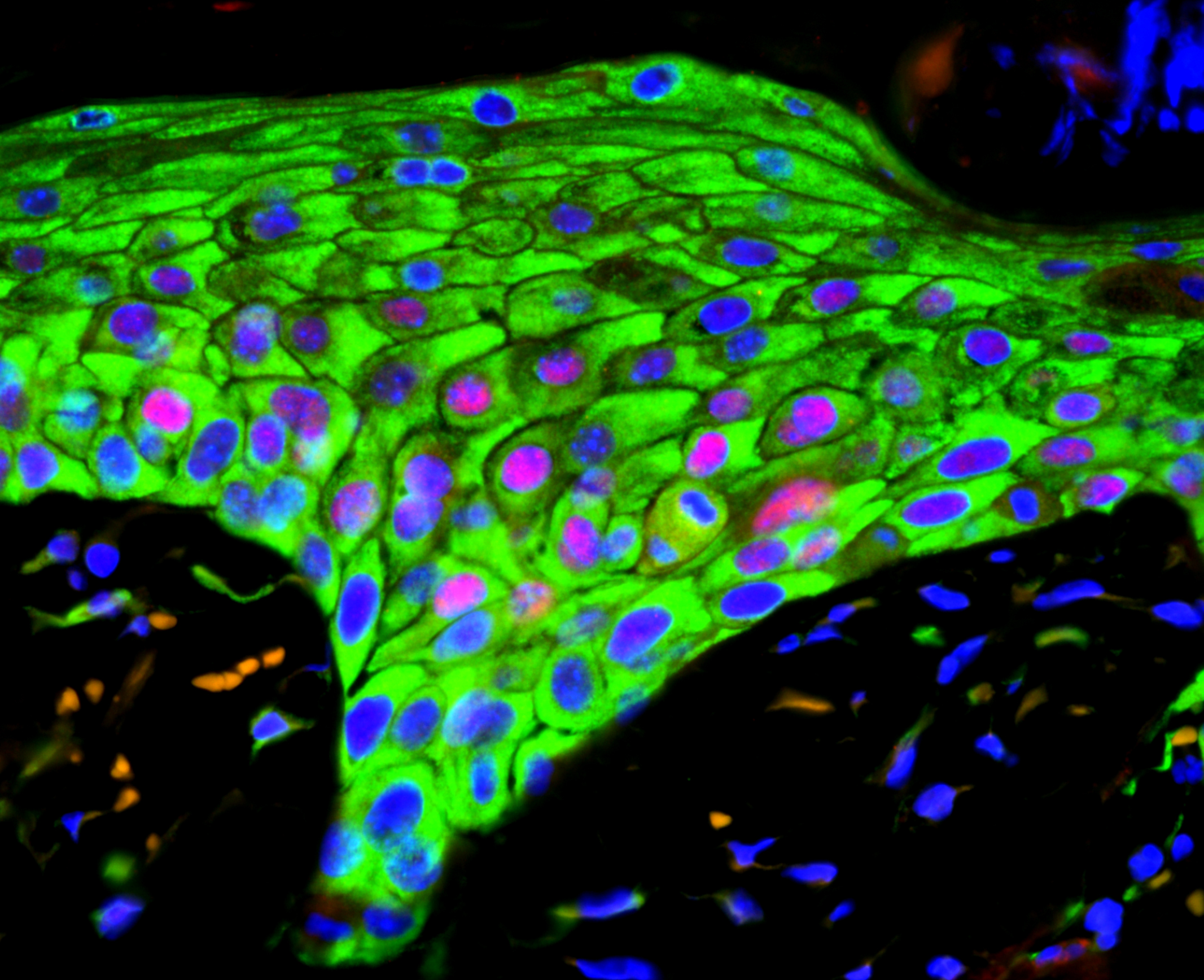
While cellular senescence is well established in vitro, the induction, persistence, frequency, and function of senescence in vivo is a recent line of research with a lot of potential for new therapeutic approaches. For the Wiggers-Bernard Conference: Senescence in vivo, we have invited top scientists from the field. The talks focused on the role of senescence in physiology and pathology, and how to modulate senescence in vivo.
The event took place in Vienna on the 14th of June at the „House of Engineers“ Palais Eschenbach, Vienna, Austria. It was organized by Mikolaj Ogrodnik, Marco Demaria, Johannes Grillari as program chairs and Nadja Ring and Heinz Redl as co-organizers, in collaboration with the International Cell Senescence Association (ICSA) and the Ludwig Boltzmann Institute for Traumatology, the Research Center in Collaboration with AUVA. Find out more on cellsenescence.info and trauma.lbg.ac.at.
Program
Our program included the following sessions:
- General Concepts, Mechanisms and Markers of Senescence
- Senescence in Physiology
- Senescence in Pathology/Cancer
- Interventions on Senescence
The event was concluded with a Concert by the Neue Wiener Concert Schrammeln and a Networking Buffet.
The full program is provided for download here: Wiggers Bernard Senescence in Vivo Conference Program
Conference Video
For one day, Vienna became the capital of senescence, as some of the top scientists from the field all assembled under one roof. The conference was not only about senescence as such, but also the senescence research field as a thriving network. Thus, we asked invited scientists to comment on what they think about the future of their field.
Interview with Peter Adams
„Looking at the transcriptome and the epigenome at the single-cell level is going to tell us what senescent cells are.“
Interview with Johannes Grillari
„We are very optimistic that, by targeting senescence, we will be able to treat a wide range of various diseases.“
Interview with John Sedivy
„I am very happy for all the new researchers in this field because they have a really exciting future in front of them.“
Interview with Thomas von Zglinicki
Interview with Jesus Gil
„In the following years, we are going to have a lot of possibilities with new clinical trials.“
Interview with Francis Rodier
„All the(se) questions we have will need new tools that we are currently developing.“
Interview with Valery Krizhanovsky
„We are only starting to understand how different cells and different organs contribute to different diseases. We will understand which cells become senescent and how they contribute to pathologies.“
Interview with Darren Baker
„I see that our technologies are really advancing to give us an opportunity to understand how diverse the classification of senescent cells really is.“
Interview with Ewa Sikora
„With personalised medicine, we will be able to treat individuals based on their genetic background, their needs and their biological age.“
Interview with Heinz Redl
„I believe that the interesting aspect is to see how much senescent cells are also involved in physiological, natural processes.“
Interview with Mikolaj Ogrodnik
„We might be able to distinguish senescent cells which are beneficial from those which are present in pathology.“
Interview with Marco Demaria
„We need to adapt new technologies and tools and use those for refining the identification of subpopulations of senescent cells.“
Interview with Tamir Chandra
„It would be great if we had a model where we can study an exaggerated increase of senescence burden to assess the phenotypes in an unbiased way.“
Interview with Eiji Hara
„In the future, we can find out which senescent cells are good and which are bad so that we can develop a more efficient way to control the deleterious senescent cells.“
Interview with Manuel Collado
„It is very interesting to produce knowledge in vitro, in the lab, but certainly, we need to move to a clinical setting where we can translate all the discoveries for the benefit of people.“
Interview with Maximina Yun
„At the end, our goal is to find ways to control cellular senescence in a way that is beneficial for organismal physiology.“
Interview with Cleo Bishop
„With some advances in technologies, we are at the point where we can ask really important questions.“
Interview with Pidder Jansen-Dürr
Interview with Florian Gruber
„I think that multimodal imaging of senescent cells in tissues is the future of detecting these cells.“
Interview with Fabrizio d’Adda di Fagagna
„I think that now is the right time to be studying cellular senescence. It has been made clear that it plays a causative role in many diseases associated with ageing.“
Interview with Juan-Carlos Acosta
„I envision the future of senescence with better biomarkers to be able to detect the senescent phenotype in a much more reliable way.“
Interview with Karin Scharffetter-Kochanek
„I think we have the tools and the knowledge to see that cellular senescence in vivo is not the same for all kinds of cells.“
Interview with Tohru Minamino
„We are now developing the senolytic immune modulation treatment so that, in the very near future, we can provide highly effective treatment for age-associated disease.“
Interview with James Kirkland
„The early trials are beginning to show that we are most likely able to reduce senescent cell burden in people. „
Interview with Thanos Kotsinas
„Our lab works on the development of tools to detect and target specifically senescent cells.“
Interview with Sundeep Khosla
„Senescent cells may be important for tissue repair and there is evidence that they may help prevent cancer. As we move from these exciting fundamental discoveries into humans, we really need to understand what happens when you eliminate or reduce senescent cells.“

